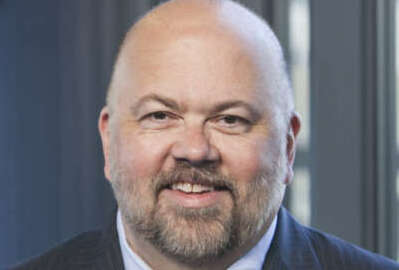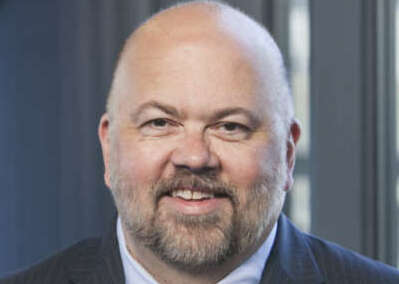
Good government organizations can be honest brokers we need for real reform
Former DHS CHCO Jeff Neal describes how The National Academy of Public Administration and The Partnership for Public Service help improve the performance of the...
This column was originally published on Jeff Neal’s blog, ChiefHRO.com, and was republished here with permission from the author.
When we look at calls for government reform, the voices that get the most attention are often those who have the most controversial ideas. Partisan and ideological “think tanks” offer suggestions for reform that are sometimes out of the mainstream and are often rehashes of the ideas they have trotted out time after time for many years. Those voices, while they may be sharing views that they truly believe are in the best interests of the American people, tend to not represent the collective views of the people.
For views that are focused more on how government can do its work more effectively, I tend to go to the “good government” organizations. In fact, I have spent many years engaged with two such organizations primarily because I am convinced they look at government reform from a completely nonpartisan perspective. Both of these organizations have a long history of paying attention to the details of governing that can be overlooked when the partisan voices offer the kind of conflict that seems to substitute for public discourse these days. Because I identify that I am affiliated with NAPA and the Partnership, from time to time I get questions from folks who ask exactly who these organizations are and why they exist. With that in mind, here is a bit of background on each, and why I believe they play an important role in improving the quality of government in the U.S.
The National Academy of Public Administration (NAPA) is a congressionally chartered, independent, nonprofit, nonpartisan Academy founded in 1967. NAPA’s work covers a broad range of public administration activities at the federal, state and local levels. The charter identifies five key objectives of the Academy:
- Evaluating the structure, administration, operation, and program performance of federal and other governments and government agencies, anticipating, identifying, and analyzing significant problems and suggesting timely corrective action;
- Foreseeing and examining critical emerging issues in governance, formulating practical approaches to their resolution.
- Assessing the effectiveness, structure, administration, and implications for governance of present or proposed public programs, policies, and processes, recommending specific changes;
- Advising on the relationship of federal, state, regional and local governments; increasing public officials’, citizens’ and scholars’ understanding of requirements and opportunities for sound governance and how these can be effectively met; and
- Demonstrating by the conduct of its affairs a commitment to the highest professional standards of ethics and scholarship.
The Academy conducts studies and does its work using panels of expert Fellows. Fellows come from government, academia, nonprofits and industry. Fellows are elected after a rigorous nomination and vetting process. The current Fellows have served both administrations from both parties, taught in some of the most prestigious schools in the country, and demonstrated a lifelong commitment to good government.
Recent NAPA programs include No Time to Wait: Building a Public Service for the 21st Century, and Governing Across the Divide. NAPA is working on Phase II of No Time to Wait. Governing Across the Divide was a unique series of topical, thought-leadership convenings. NAPA describes them as “solution-focused and aimed at identifying the best practices to bridge the gaps and obstacles that prevent the scaling of services across all levels of government.” Work continues on the four topics — the changing role of states, innovation in local government service delivery, the future of public service and citizenship, and resilient critical infrastructure.
The Partnership for Public Service was founded in 2001 by Samuel J. Heyman, who said “The future of our nation quite simply depends on the quality of our government.” As the Partnership says, “We all deserve a government that is responsive to the needs of our fellow citizens. While others may debate whether government should be bigger or smaller, we focus on making it better. Our nonpartisan stance allows us to collaborate with many different stakeholders who share our vision of a better government. We serve as a bridge between administrations, across the political aisle and from government to the private sector, bringing together different perspectives needed to develop forward-thinking solutions.”
In addition to working with current and former government officials, the Partnership has assembled a group of “Strategic Advisors to Government Executives” or SAGEs, to help government executives benefit from the experience of their predecessors and people in industry. I have been participating as a SAGE for several years. In addition to the SAGE program, the Partnership runs “Best Places to Work in the Federal Government” and the Samuel J. Heyman Service to America Medals (SAMMIES) awards program to recognize the truly exceptional work done by government employees. Other programs include the Ready to Govern program for presidential transition, an Emerging HR Leaders program, and more.
Both NAPA and the Partnership have and can continue to play a critical role in government reform. They approach government without partisanship and with a focus on how government can better serve the American people. In my own work with both, I have worked with Democrats, Republicans and Independents, with conservatives, moderates and progressives — all focused on how our government can be more effective. Both organizations have offered concrete ideas to reform federal programs, and both work with members and staff on the Hill to identify laws that can be amended, abolished or passed to facilitate better government.
Whatever direction government reform takes, NAPA and the Partnership can continue to play the role of honest broker for a great many subjects, offering solutions that are not dependent on special interests or partisanship.
Jeff Neal is a senior vice president for ICF and founder of the blog, ChiefHRO.com. Before coming to ICF, Neal was the chief human capital officer at the Homeland Security Department and the chief human resources officer at the Defense Logistics Agency.
Copyright © 2024 Federal News Network. All rights reserved. This website is not intended for users located within the European Economic Area.
Related Stories




